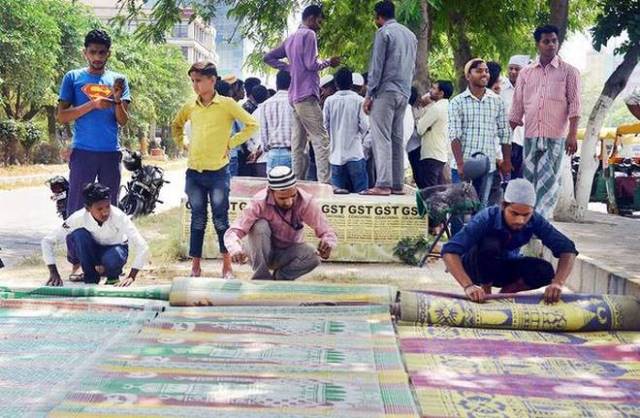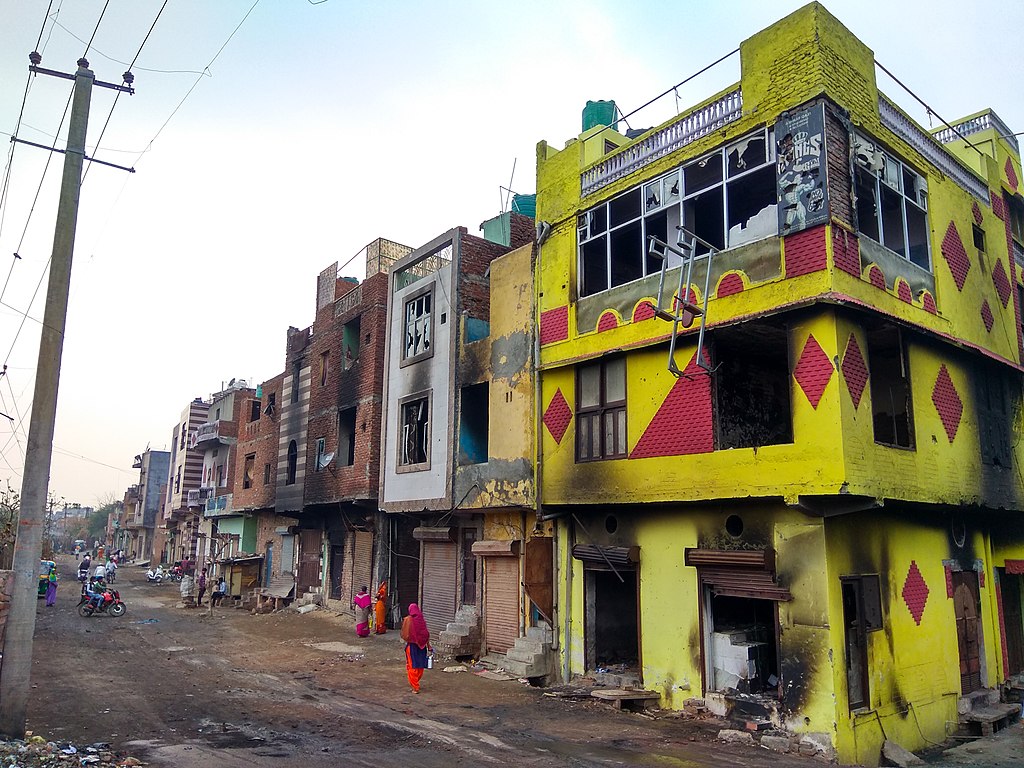Gurugram’s controversial take on the offering of Namaz in open spaces epitomizes the legitimization of communal intolerance and the assertion of narrow identity politics.
Syed Mohammad is an Independent Journalist and Activist- based in Indore.

India is a secular nation and its history of secularism came from a conscious decision that was made by its leaders after partition. The tragic unfolding of partition based on communal identities and religious intolerance led to large scale destruction both in terms of human lives and assets. Thousands of women were raped and abducted, both the religious communities engaged in violence and destruction, people were compelled to leave their home and belongings and move to the other side of the border and a great amount of inter community disbelief, hatred and fear were generated. Pakistan chose to become an Islamic state while India despite partition chose to become a secular state accommodative and respectful towards various religions.
This meant that the Indian constitution and the state were to look at all individuals beyond their religious identities and treat them in the same way. However it has been discovered several times that the secular ideals that were cherished have often been neglected and many minorities have been denied their space.
Communal riots, cases of lynching, discrimination in public office and institutions have occurred in many corners of the nation but a phenomenon that has also unfolded with the progression of time is that the trust and love between the majority and the minority communities, their eagerness to share space and exchange cultural traditions, their ability to engage in interpersonal and cordial negotiations and to look at each other with respect and dignity has decreased over time.
This implies that communal politics easily invites people to fight the other, any spark or incitation becomes a reason to engage in violence. When society begins to give critical significance to parochial identity instead of shared heritage, it moves towards regimentation and backwardness. Developmental issues are less attractive compared to communal politics; the fear psychosis and stereotypes about the ‘other’ become important.
This is perhaps what our nation is seeing at this time. We witnessed cow lynching, mob violence, dishonouring of women, allegations of anti-national/anti-state mobilizations against certain minority institutions and the greater distrust and surveillance issued by the state against a particular minority community.
However the recent unfolding at Gurugram symbolised the culture of communal intolerance and fear that have become integral aspects of our lives in the nation. Right wing organisations have recently accused that Bangladeshi immigrants were attempting to grab land in Gurugram in the name of offering Namaz on Fridays.
The offering of Namaz in open areas has been seen to be practiced because there are few mosques in the area and accommodating the devotees has become difficult. Several members of the minority assert that it is a strategic move before the Lok Sabha election to attract more votes from the majority.
In Gurugram’s Millennium city the controversy over Jumma Namaz has been going on over the past few weeks. Members of the community feel that there are few mosques in the community and it becomes impossible to accommodate a large section of the people who are then compelled to sit on the road. Old Gurugram has eight mosques with a combined capacity of 3,000 people however there is only one mosque in Gurugram, sector 57 and it is under litigation.
Mahavir Bhardwaj, the Convenor of the Sanyukt Hindu Sangharsh Samiti , the organisation that is leading the movement against offering of Namaz in open public spaces suggests that that this was a strategy of the minorities to grab land illegally. The organisation demands that out of the 90 open spaces in Gurugram where Namaz is offered only few be allowed for the purpose of Namaz and stringent action be taken against immigrant Muslims like the Rohingyas and the Bangladeshis.
The controversy is going on in Gurugram and the issue has become the centre of public discussion. In an apparently urban, educated, professional and wealthy Gurugram it is paradoxical that people’s capacity for adjusting and tolerating the practices of diverse groups is so low. Is our training, our qualification, our educational upbringing insufficient for making us matured and responsible citizens?
India being a secular nation must give space and a decent life to members irrespective of their religious identities. The construction of mosques or churches is as central to the spiritual environment as is that of the temples. It is for the ordinary citizens of the nation to think beyond the politics of communalism and truly imbibe the secular ideal. Diversity and dissent are the heartbeat and breath of democratic nations, aren’t they?
***












